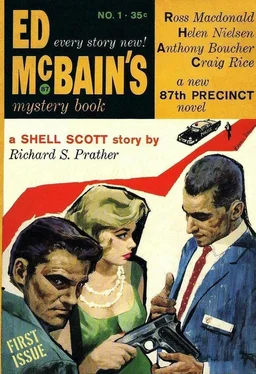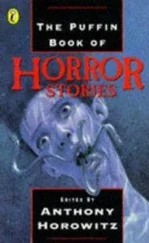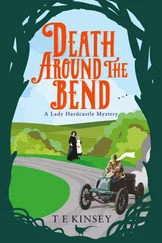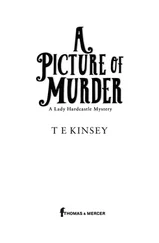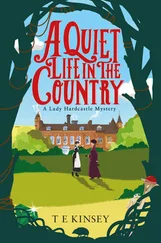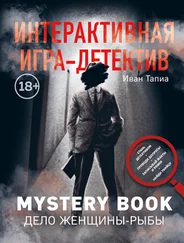Anthony Boucher - Ed McBain’s Mystery Book, No. 1, 1960
Здесь есть возможность читать онлайн «Anthony Boucher - Ed McBain’s Mystery Book, No. 1, 1960» весь текст электронной книги совершенно бесплатно (целиком полную версию без сокращений). В некоторых случаях можно слушать аудио, скачать через торрент в формате fb2 и присутствует краткое содержание. Город: New York, Год выпуска: 1960, Издательство: Pocket Books, Жанр: Детектив, на английском языке. Описание произведения, (предисловие) а так же отзывы посетителей доступны на портале библиотеки ЛибКат.
- Название:Ed McBain’s Mystery Book, No. 1, 1960
- Автор:
- Издательство:Pocket Books
- Жанр:
- Год:1960
- Город:New York
- ISBN:нет данных
- Рейтинг книги:5 / 5. Голосов: 1
-
Избранное:Добавить в избранное
- Отзывы:
-
Ваша оценка:
- 100
- 1
- 2
- 3
- 4
- 5
Ed McBain’s Mystery Book, No. 1, 1960: краткое содержание, описание и аннотация
Предлагаем к чтению аннотацию, описание, краткое содержание или предисловие (зависит от того, что написал сам автор книги «Ed McBain’s Mystery Book, No. 1, 1960»). Если вы не нашли необходимую информацию о книге — напишите в комментариях, мы постараемся отыскать её.
Ed McBain’s Mystery Book, No. 1, 1960 — читать онлайн бесплатно полную книгу (весь текст) целиком
Ниже представлен текст книги, разбитый по страницам. Система сохранения места последней прочитанной страницы, позволяет с удобством читать онлайн бесплатно книгу «Ed McBain’s Mystery Book, No. 1, 1960», без необходимости каждый раз заново искать на чём Вы остановились. Поставьте закладку, и сможете в любой момент перейти на страницу, на которой закончили чтение.
Интервал:
Закладка:
This extraordinarily pied outfit was all she possessed in the way of clothing. It was the costume in which everybody knew her and in which she was literally found dead. She had last left home thus attired; and her mum (now Mrs. Watts) refused to send her either her clothes or her clothing ration books. Instead, Mum wrote her pious and injured letters, begging her to cure herself of venereal disease (which, by some miracle, she did not have), and attempting to lure her home with such adjurations as: “Joan, please think before it is too late and remember remorse is the worst thing in the world to bear. When I am dead you will think about all this, and wish that you had been a better girl to me, so before it is too late, Joan, try hard to alter, won’t you?... I am still praying every night for you, Joan.” The letters had the effect that might be expected.
Joan settled into something like an engagement with a Canadian soldier named Francis. He even gave her a wedding ring. But Francis was sent back to Canada, and they parted without marriage or any specific plans for marriage. And that same week, still wearing Francis’ ring, she met August Sangret.
Her capacious handbag did not contain cigarettes or a flask or contraceptives. It did contain a New Testament, a crucifix, a rosary, a devotional pamphlet, her National Health card, a piece of soap, a number of letters from and to soldiers (she seems to have sometimes asked for her own letters back, and carried them with her), and photographs of several soldiers and of her dead father.
“You may think,” said Eric Neve, K.C., at the trial, with British understatement, “upon the evidence that you hear that she would not perhaps be incorrectly described as being somewhat wayward.” Her mother, without being asked, volunteered the statement: “I would describe her as being a wayward girl and a bit of a trial.” Superintendent Richard Webb, of the Surrey Constabulary, who had had his problems with Joan and her soldiers, closed the prosecution case by saying: “She was a very well-spoken and a very quiet-spoken girl. When you spoke to her you got the impression that she was a good-living girl by the way she spoke. She had a very charming way.”
August Sangret was born on August 28, 1913; he was twenty-eight when he met Joan Wolfe and twenty-nine when he was hanged. He was born and raised in Battleford, Saskatchewan. Mr. Justice Macnaghten, in his summing up, mysteriously described his as having come “from the far east of Canada to fight our common foe.” Actually Saskatchewan is a western province, and Battleford (a town then of a little more than a thousand in population, adjoining the larger North Battleford) is almost due north of Billings, Montana.
Both of his parents were métis — that is, Canadians of mixed French and Indian (in this case Cree) blood. Saskatchewan knew the metis well: they had been arbitrarily dispossessed of their lands when the French lost dominion over Canada, and had staged unsuccessful rebellions in 1869 and 1885. At home the Sangrets spoke their own patois, a mixture of Cree and English with a dollop of French; but August (surely this was originally Auguste?) spoke plain English well enough, if, as he confessed, “there are some big words I cannot understand.”
He was, however, totally and literally illiterate. Saskatchewan has free and compulsory public education, but Sangret never attended any kind of school at any time, and was unable to read or write. He was at least nominally a Roman Catholic.
Through his early twenties he worked as a farm laborer in Maidstone, Saskatchewan. At this period Saskatchewan, pre-eminently an agricultural province, was suffering an even worse depression than most of the world. The economic factors were aggravated by severe drought and dust storms. We can imagine that his work was sporadic and badly paid; we know that he got into occasional trouble with the law. When he was eighteen, he served six months for violent assault; six years later he drew three months for threatening to shoot a woman of whom he was jealous. He also had convictions for the standard depression-era crimes of vagrancy and theft.
From 1935 to 1939 Sangret served in the Battleford Light Infantry, a militia regiment which trained two weeks in the year; and on June 19, 1940, he enlisted in the Regina Rifles of the regular Canadian Army. (In October, 1942, he was still a buck private.) He was sent to England in March of 1942, and in July he was assigned to the Canadian Education Company, stationed at 103 Camp, Witley, Surrey.
The Education Company did not achieve much with Sangret; after three months his instructor stated, “He can just barely write the A B C.” But he kept up quite a correspondence, inducing his fellow soldiers to read his letters to him and to take down the dictated replies. The letters were mostly from women: women left behind in Canada, who regularly sent him presents (“fudge, razor blades, perfume, and shaving cream. I use perfume,” he said); women whom he’d met in Glasgow on leave and hoped to see again soon. His taste seemed to run to mature women, widowed or separated from their husbands.
Slow in speech, inarticulate, impassive (“What I mean,” said his instructor, “is that it takes a lot to upset an Indian chap”), August Sangret was still a markedly attractive man. The Cree of his ancestry predominated in his bronze skin, black hair, strong and regular features. Molly Lefebure, pathologist Simpson’s secretary, was much taken with him — especially on the postmortem table where she could observe that he was “muscular, well built, almost good enough for one of Fenimore Cooper’s novels.” A great deal of nonsense was later to be written about Sangret’s “savage heritage,” even to hints that the burial of the corpse followed some arcane tribal ritual; but there is little doubt that he looked, at least, satisfactorily like the romantic concept of the Noble Savage, complete with handsome poker face.
On Friday, July 17, 1942, August Sangret and Joan Wolfe met in a pub in Godalming. (Geographical note: All the places mentioned — Godalming and Guildford and Witley and Thursley — are close together, within a radius of about ten miles, in the southwest corner of Surrey, which is the county directly southwest of London.) Sangret himself has described the meeting:
“I ordered another pint of beer and as I went to sit down a girl entered... She bought a glass of lemonade for herself and came and sat alongside of me. I said ‘Good evening’ to her, and ‘Will you have a drink?’ She said ‘No.’ ” But they got to talking, mostly about Francis and the abandoned wedding plans, “and after about half an hour I asked Joan to come for a walk with me. She agreed, and I took her to the park,” where they talked about her father’s suicide and her mother’s enmity. “After about an hour had passed I suggested going for a walk and we left the park and walked up the hill to some grassland where we sat down. We started kissing and cuddling and I asked her if she would ‘go with me.’ I mean by this that I wanted to have connexions with her. She did not refuse in any way and I had connexions with her. I did not use a French letter and I just did it the natural way.”
(Throughout, both in his long statement to the police and later on the witness stand, connexions is the normally monosyllabic Sangret’s only word for sexual intercourse. One imagines that it was suggested by a police stenographer.)
“After this we got up and walked back to Godalming Railw’ay Station... I gave her my address at the camp, and she promised to write to me. We did not make any arrangements to meet again.”
She did not write; but they did meet again, on the following Tuesday. It was purely by chance. Sangret and another Canadian soldier were standing outside a fish-and-chips shop in Godalming when Joan came along and stopped to talk. They talked for so long that a suspicious policeman interrupted and carried Joan off to the police station for questioning — presumably on suspicion of soliciting, which was markedly unjust to Joan’s amateur generosity. Sangret went with her, and after she was released “we walked to the grassland where we had previously been and again we had connexions.” This time they arranged to meet again the next day, but Joan did not turn up. She had fainted in the street and been taken to a hospital in Guildford.
Читать дальшеИнтервал:
Закладка:
Похожие книги на «Ed McBain’s Mystery Book, No. 1, 1960»
Представляем Вашему вниманию похожие книги на «Ed McBain’s Mystery Book, No. 1, 1960» списком для выбора. Мы отобрали схожую по названию и смыслу литературу в надежде предоставить читателям больше вариантов отыскать новые, интересные, ещё непрочитанные произведения.
Обсуждение, отзывы о книге «Ed McBain’s Mystery Book, No. 1, 1960» и просто собственные мнения читателей. Оставьте ваши комментарии, напишите, что Вы думаете о произведении, его смысле или главных героях. Укажите что конкретно понравилось, а что нет, и почему Вы так считаете.
